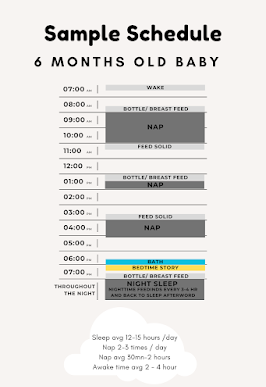Reaching 6 months old is a significant milestone for your baby, marking half a year of growth and discovery. At this stage, babies often achieve various developmental milestones and begin learning new things. It’s also the time to introduce solid foods, such as vegetable purees, signaling the start of new dietary adventures. Additionally, you might notice the exciting appearance of your baby’s first tooth, visible signs of teething that herald this new phase of development. Babies also start to develop distinct personalities, making interactions and playtime more engaging and enjoyable. They show greater interest in their surroundings, becoming more interactive and curious about the world around them.
As your baby reaches this half-year mark, you’ll observe changes in their sleep and eating schedules, which may differ significantly from the first six months of their life. The introduction of solid foods can lead to longer stretches of night sleep, providing a welcome adjustment for many parents. Wake times extend, offering more opportunities for fun activities outside the home and even short family trips. This period of extended wakefulness allows for richer experiences and bonding opportunities, making it an exciting time for both baby and parents as you explore the world together. Let’s dive into sample sleep and feed schedule for 6 months old baby:

Sleep Facts for 6 Months Old Baby
- Average sleep duration is 12 to 15 hours per day
- Average nap duration ranges from 30 minutes to 2 hours
- Average awake and playtime duration is 2 hours to 4 hours
- Nap 2-3 times a day
Sample Sleep Schedule for 6 Months Old Baby
Discovering a routine that works for your little one can be a game-changer for both baby and parents. Check out this sample sleep schedule designed with your 6-month-old baby:
7:00 AM: Wake and Play time
Start the day with some gentle play, cuddles, and interaction to stimulate your baby’s senses and muscles.
8:30 AM: Bottle/ Breast Feed
Offer a nourishing feed to fuel the morning’s activities and growth.
9:00 AM: Nap
A short morning nap helps to reset, ensuring they’re not overtired by lunchtime.
11:00 AM: Wake and Feed Solid Food (Purée)
Introduce solids in a calm, exploratory way, allowing your baby to taste and experience new textures.
11:30 AM- 1:00PM Play time
Use this window for more engaged activities, sensory play, and perhaps a little outdoor time if possible
01:00 PM: Nap
This midday nap helps break up the day and supports healthy brain development.
2:00 PM: Wake And Play time
Post-nap playtime can involve quieter activities as they fully wake up, perfect for reading or gentle play.
3:30 PM: Feed Solid (Purée)
Another opportunity to offer solids, helping them get used to eating at regular meal times
4:00 PM: Nap
A late afternoon nap can help stave off early evening fussiness and ensure they’re not too tired for bedtime.
5:00 PM: Awake and Play Time
Engage in interactive play, working on motor skills and enjoying bonding time.
6:30 PM: Bath
A warm bath can be soothing and signals the beginning of the bedtime routine.
7:00 PM: Bedtime story and Bedtime Routine
Calm down with a bedtime story in a dimly lit room, preparing them for sleep with cuddles and quiet time.
8:00 PM: Night sleep
Gently put your baby down to sleep for the night, setting the stage for a restful night.
Throughout the night: Depending on your baby’s needs and growth, they might still require 1-2 feedings overnight. Gradually, as they start consuming more solids around 6 months and potentially sleeping longer stretches, nighttime feedings might decrease.
Remember, every baby is different, and it’s okay if your baby’s schedule doesn’t align perfectly with this sample. It’s always best to consult with your pediatrician if you have any concerns about your baby’s feeding and sleeping schedule.


.png)